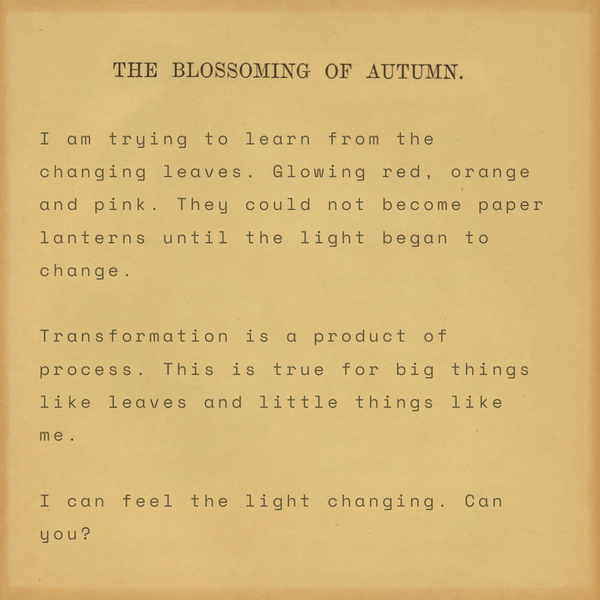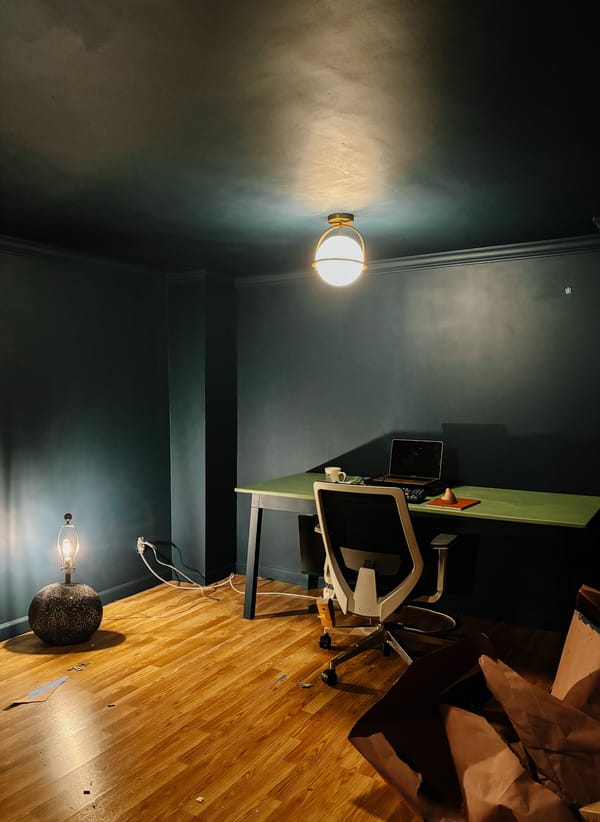An unedited rant about anti-abortion activists and white feminists
Anti-abortion activists and white feminists feast while insisting scarcity is the norm.

What a week.
I don’t think I’ve talked to anyone who hasn’t experienced some sort of fallout from things they’ve said - in conversation or a post online - since news broke about Roe v. Wade. (Hi! I am also people who has experienced fallout from things they’ve said!) The details vary, but the themes remain the same. A good example comes from a reader who emailed me after a hard conversation with her mom. I’m sharing an excerpt from her email with permission:
“I tried to explain to my mom that there aren’t fewer abortions when abortion is illegal. Abortions just become more dangerous and happen later. I thought maybe she didn’t know! If they’re going to happen, don’t we want them to be safe and to happen as early as they can? But she knew all that. She still thinks it should be illegal, even in the case of rape. So it seems like she just wants to hide it. Because if it’s illegal, it will be mostly hidden. She’s not for more spending for birth control or reproductive education. She’s also not for more social spending to help mothers and children. And so I told her she’s not really against abortion; she’s against being honest about abortion.”
They haven’t talked since that conversation. She’s right about abortions happening much later in pregnancy when women can’t access abortions. When reproductive rights are secured by policy and culture, the majority of abortions occur incredibly early in a pregnancy. I wrote about this last December,
“In high income countries with easy access to abortion, 9 out of 10 abortionshappen before 12 weeks. When detection of pregnancies and access to abortion pills exist together, 75 - 97% of abortions occur before nine weeks. In America, 21 states have trigger laws that will ban “most or all abortions” when the court overturns Roe. People who live in those states will need to travel to other states get abortions. This means that abortions will happen much later in pregnancies.
Maybe her mom does just want to hide abortions. But I think we have to ask ourselves why. There’s so much shame still circling sex, bodies, and choice. In much of America, that shame is informed by Western traditions and myths. Like Adam, Eve, and the Garden. Did Eve have the right to choose? The first version of the Adam and Eve story appears around 950 BCE. It certainly existed in other forms even before that. This means people have been arguing about whether women deserve to have a choice for…. a long time.
Why are people willing to outlaw abortion but unwilling to provide the economic and social tools necessary for actually decreasing abortion? They don’t think people who get pregnant get to choose. Why aren’t they willing to fund a social safety net that could hold up parents and their kids? Providing potential parents with enough economic stability to thrive as parents is also giving them a choice. People don’t get to choose through easy access to birth control; they don’t get to choose through education; they don’t get to choose through economic policies that support parents and children.
This is all framed by those old myths about women making choices. Women don’t get to choose motherhood, and they don’t get to choose not to be mothers. They don’t get to choose not to be punished, either. When women become mothers, they’re punished economically and socially for becoming mothers. And when they have an abortion, they are punished economically, socially, and, soon, by the law of the land, for not becoming mothers. But of course, this doesn’t only punish women. It punishes kids and families, too. And when it comes to people who can get pregnant, the punishment doesn’t cut equally. It hurts Black women, trans men, Indigenous women, and low-income women the worst.
The white feminists who insist the marketplace is the only place people can find liberation are anti-choice, too. They’ve bought into our economic system that exploits care work and won’t divest. They reject policies that would pay currently unpaid caretakers for their work because they say caretaking is a vehicle of oppression. They help make that true. White feminists actively devalue care work - the care work done by the caretaker and the care work done by the person receiving care. Some people receiving care are children, and some of them are chronically ill, disabled, or dying. Some people receiving care are adults, and some of them are chronically ill, disabled, or dying. Every person receiving care is also performing care work. Why are white feminists trying to hide all that work?
Oh shit, did I just give the white feminist game away? Market liberation for me founded on oppression of thee.
Every time I read another one of their think pieces about how mothers need to get a job to be free, I wonder if they’ve ever met someone who had to work for minimum wage in the service industry. My mom has not felt incredibly liberated while being yelled at by anti-maskers at the big box store where she works. I wonder! How many people who cannot afford childcare for their children would keep working as underpaid childcare workers for white women if they had even an inch of economic empowerment? Oh shit, did I just give the white feminist game away? Market liberation for me founded on oppression of thee.
Those white feminists should be working to make sure anyone who can get pregnant can have choices. That requires full reproductive rights AND full caretaking rights. The fullness of either cannot exist without the other. Full reproductive rights would mean easy, affordable access to reproductive care, including everything before, after, and in-between: pap smears, birth control, trauma-informed care, endometriosis care, abortion pills, transgender care, pre-natal care, post-natal care, menopause. What would caretaking rights look like? The right to keep a wanted pregnancy because the pregnant person knows they’ll be able to feed a child, clothe a child, and house a child is a start. That requires economic justice.
Anti-abortion activism and white feminism feed right the hell into one another.
In a world where care work is valued as much as market work, some parents would choose to work in the home full-time. But, many parents would choose to work outside of the house and inside the home. They wouldn’t be professionally punished for maternity leaves or even just because they could get pregnant in some distant future. When I write in favor of policies like Universal Basic Income, I am writing in favor of a woman’s right to choose. But that choice is not just a matter of one economic or healthcare policy. Defunding the police, racial justice, funding social work, abolishing prisons, and instituting reparations are all vital pieces of reproductive justice and care justice.
If this doesn’t apply to you then don’t take it personally but: I rarely see white women go hard for reproductive justice unless the topic is abortion. Where all y’all when we protest abuse against incarcerated pregnant people, forced sterilization, stolen children, denied care…
— 🦋🌸Gimme the Lute🌸🦋 סלע (@moontwerk) May 6, 2022
My reader’s mother wants to hide reproductive reality, and white feminists wish to hide the actual value of care work. Do we see how that’s hiding the same thing? Anti-abortion activism and white feminism feed right the hell into one another.
We’ve been sitting hungry at a table, watching anti-abortion activists and white feminists feast while they insist scarcity is the norm. I’m fucking tired of it. It’s time to flip that table and walk into another room. A room with a table big enough for everyone and platters piled high with natural abundance.
We’ve been sitting hungry at a table, watching anti-abortion activists and white feminists feast while insisting scarcity is the norm.
The people who set the first table are welcome to sit at that big table when ready. Today? Today, I almost hope they want to stay in that other room, scrambling for scattered scraps. I am so angry. Tomorrow, I’ll be in a better place. And I’ll know that many of them, like my reader’s mother, may not have even known walking into another room was possible. I’ll know that I need to invite them to dinner.
But first, you and I must build and set that big table. Over the course of this newsletter, we’ll revisit what that looks like again and again. And I’ll recommend things to read by people wiser than me.
Today, I recommend this fantastic newsletter from Garrett Bucks: History is Written by the Losers (Who Keep Organizing)
The book We Do This 'Til We Free Us: Abolitionist Organizing and Transforming Justice by Mariame Kaba
The book Reconsidering Reparations by Olúfhemi O Táíwò
I’ve been writing about tables for a long time. This was one of my first viral newsletter pieces about tables - A Crowded Table.
I also think this piece I wrote for Harper’s Bazaar is, unfortunately, still topical.




